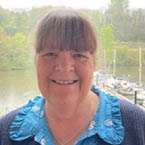What is Clean Air Day?
Global Action Plan (GAP) is a charity that has been working for over 30 years to highlight and campaign on the impacts of environmental pollution on human health. In 2017, GAP decided to launch the first Clean Air Day to raise awareness of this issue. It has since become the UK’s largest pollution action campaign day.
How big an impact can air pollution have on health?
There is now compelling evidence linking both long and short term exposure to air pollution as contributing factors to the development of chronic cardiovascular and respiratory diseases, lung cancer and reduced life expectancy.
One of the biggest risks of air pollution on health comes from inhalation of ‘respirable’ particulate matter (PM) that is less than 10 micrometres in diameter (PM10), and greater still from fine particulate matter of less than 2.5 micrometres in diameter (PM2.5), as it can cross through the lung cell walls and enter the bloodstream and transported around the body.
In February 2022, The Office for Health Improvement and Disparities (OHID) have said that “In the UK, air pollution is the largest environmental risk to public health.” The annual mortality of human-made air pollution in the UK is equivalent to between 28,000 and 36,000 deaths every year.
It is estimated that between 2017 and 2025 the total cost to the NHS and social care system of air pollutants (fine particulate matter and nitrogen dioxide), for which there is more robust evidence of health impacts, will be £1.6 billion.”
Why is this a workplace health and safety issue?
Health and safety legislation requires employers to ensure that indoor work environments are well ventilated, the origins of this can be traced as far back as the 1802 Factory Act.
The importance of good air quality and ventilation was also reaffirmed in all workplaces, but especially within health care settings, as a measure that can help combat the spread of biological agents like SARS-CoV-2.
Specifically, the Workplace (Health, Safety and Welfare) Regulations 1992 require employers to ensure that:
“Effective and suitable provision shall be made to ensure that every enclosed workplace is ventilated by a sufficient quantity of fresh or purified air”
The Health and Safety Executive’s (HSE) accompanying Approved Code of Practice for these regulations state that air introduced into workplaces, so as far as possible, be free of any impurities likely to be offensive or cause ill health.
A current example of poor air quality in a healthcare workplace is where diesel engine exhaust emissions (DEEEs) are drawn into buildings from ambulances idling outside of Emergency Departments. Employers have a duty to protect staff from such exposures. If you are an RCN Rep, visit the Reps hub to find out more on DEEs and employers’ duties.
How is the health care sector involved with Clean Air Day?
In 2019, Great Ormond Street Hospital (GOSH) entered in to a collaboration with GAP to create the Clean Air Hospital Framework (CAHF) strategy, the aim of which is to encourage health care providers to take positive steps to improve air quality in and around hospitals, creating a healthier environment for patients, staff, and the wider community.
RCN members at the University Hospitals Plymouth NHS Trust have worked with the employer to use the CAHF to try and tackle the issues, with the trust now committed to achieving an CAHF ‘Excellent' score of 70% by 2028.
Steps taken have included:
- The introduction of air quality monitors on site
- The completion of an indoor air quality assessment to identify sources of indoor air pollution and development of innovative solutions seeking to reduce and manage it.
- A ‘No idling’ policy for contractors using non-road mobile construction machinery, as well as working with strategic partners, including bus companies and NHS Supply Chain, to reduce congestion of road traffic.
How you can get involved
Why not sign up to be a health and safety rep today and join the team that are helping to make a difference for our colleagues and patients by improving the safety of their working environments? As an active RCN rep, I’ve learnt new skills and gained confidence in areas I would never have had access to in my nursing role. I have made lifelong friends through our network of reps across the four countries of the UK.
References:
‘Air Pollution: Applying All Our Health’. GOV.UK, https://www.gov.uk/government/publications/air-pollution-applying-all-our-health/air-pollution-applying-all-our-health.
Workplace Health, Safety and Welfare. Workplace (Health, Safety and Welfare) Regulations 1992. Approved Code of Practice and Guidance - HSE. https://www.hse.gov.uk/pubns/books/l24.htm.


 Share on LinkedIn
Share on LinkedIn




